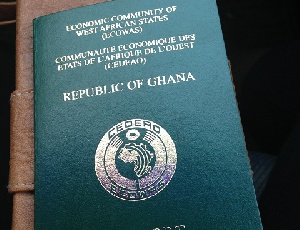 In reviewing the decision, the consulate may maintain the original decision or withdraw same
In reviewing the decision, the consulate may maintain the original decision or withdraw same
Application for Review
When your visa is refused, you may apply for review of the decision. This also called a remonstrance. You may pursue a review if only the national law of the Member State allows it. Not all Member States provide an option for review. If you have the option for review, this will be specified in the Notification of Refusal.
What is a review?
A Review simply means requesting the consulate to reconsider its decision on the basis of your representations. A different officer will consider your submissions along with your evidence to determine whether you have made a case for him to overcome the refusal and issue a visa. If you have new evidence or information that may enhance your case, you must attach them and explain its relevance to your case.
Procedure for review
A review need not take any particular form. It may be handwritten or typed and may be sent personally, by post or email. The review letter must state your full name, date of birth, your passport number and the date of the refusal. It must also state your full return address and email. The letter must be personally signed by you. If you use a representative, you must attach a signed letter of authorisation.
The Notification of Refusal will specify the time limit within which you must submit your review. The period is usually 30 days from the date of the decision. You must submit your review at the consulate that refused your visa. Do not send your passport with your review. If your review is approved, the consulate will contact you to submit your passport for a visa to be issued. There is no fee for submitting a review.
Outcome of review
There is generally no fixed period for deciding a review. A decision may take several weeks and may take up to 3 months. The period is usually determined by the internal procedure of the consulate and differs from one consulate to another.
In reviewing the decision, the consulate may maintain the original decision or withdraw same. If the consulate maintains the original decision, they will provide their basis for doing so. In doing so, the original decision will be withdrawn and be substituted by the review decision. You will usually have the right to appeal the review decision. If you decide to appeal the review decision, you must lodge your appeal with the appropriate authority in the Member State. The review decision will specify where you must lodge your appeal and the period within which you may do so.
The consulate may also withdraw the original decision and grant you a visa. The consulate will contact you to submit your passport for your visa to be issued. They may specify certain conditions which may include the presentation of a return air ticket, a valid travel medical insurance, a travel itinerary or a new document specifying the purpose of the journey.
Reapplication for a Visa
You may also reapply if your visa is refused. There is no period within which you may reapply even though reapplications made immediately after a refusal often have little chance of success.
Unlike an appeal and review, you will have to pay a new visa fee, complete a visa application form and submit yourself before the consulate. A reapplication is usually preferred if you were refused on the basis of a substantive document such as a cancelled hotel booking. A reapplication is also ideal if the reason for your visit is time bound. You must submit new evidence in support of your reapplication. If you fail to provide new evidence that tends to address the basis for the refusal, your visa will still be refused.
Conclusion
The decision to pursue an appeal, a review or reapplication may be determined by the circumstances of your refusal, the option specified in in the Notification of Refusal, among others. You will have to assess your options to decide which may be suitable for you.